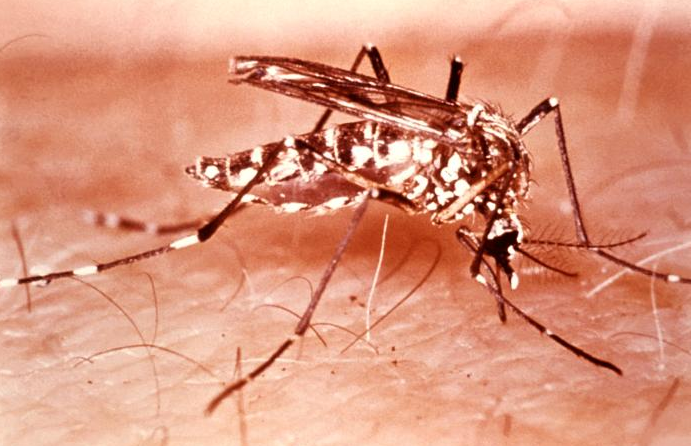Purdue researchers have identified a new class of chemical insecticides that could provide a safer, more selective means of controlling mosquitoes that transmit key infectious diseases such as dengue, yellow fever and elephantiasis.

Known as dopamine receptor antagonists, the chemicals beat out the neurotransmitter dopamine to lock into protein receptors that span the mosquito cell membrane. Disrupting the mechanics of dopamine – which plays important roles in cell signaling, movement, development and complex behaviors – eventually leads to the insect’s death.
The researchers used the mosquito genome to pinpoint chemicals that will be more selective than current insecticides, which bind readily to molecules in humans and non-target insects, said Catherine Hill, professor of entomology and Showalter Faculty Scholar.
“These are sophisticated designer drugs,” she said. “They’re like personalized medicine for mosquitoes – but in this case, the medicine is lethal.”
Hill’s team showed that DAR antagonists have high potency for both the larval and adult stages of the Aedes aegypti mosquito – which transmits yellow fever, dengue and chikungunya – and Culex quinquefasciatus, the vector of West Nile virus and the disfiguring disease elephantiasis.
Effective pest control has historically been important in slowing the spread of mosquito-borne diseases. But overuse of antibiotics and insecticides has led to the rise of drug-resistant strains of infectious diseases and the emergence of mosquitoes that can withstand conventional pesticides, a “double whammy,” Hill said.
“There’s an urgent need for new insecticides,” she said. “We are seeing a resurgence of infectious diseases that for the last 50 years we had the luxury of controlling with antibiotics and modern medicine. These diseases are increasingly going to become a problem for people everywhere.”
Read the entire Purdue news release HERE


One thought on “Watch out Aedes aegypti: Purdue entomologist’s mosquito control discovery”